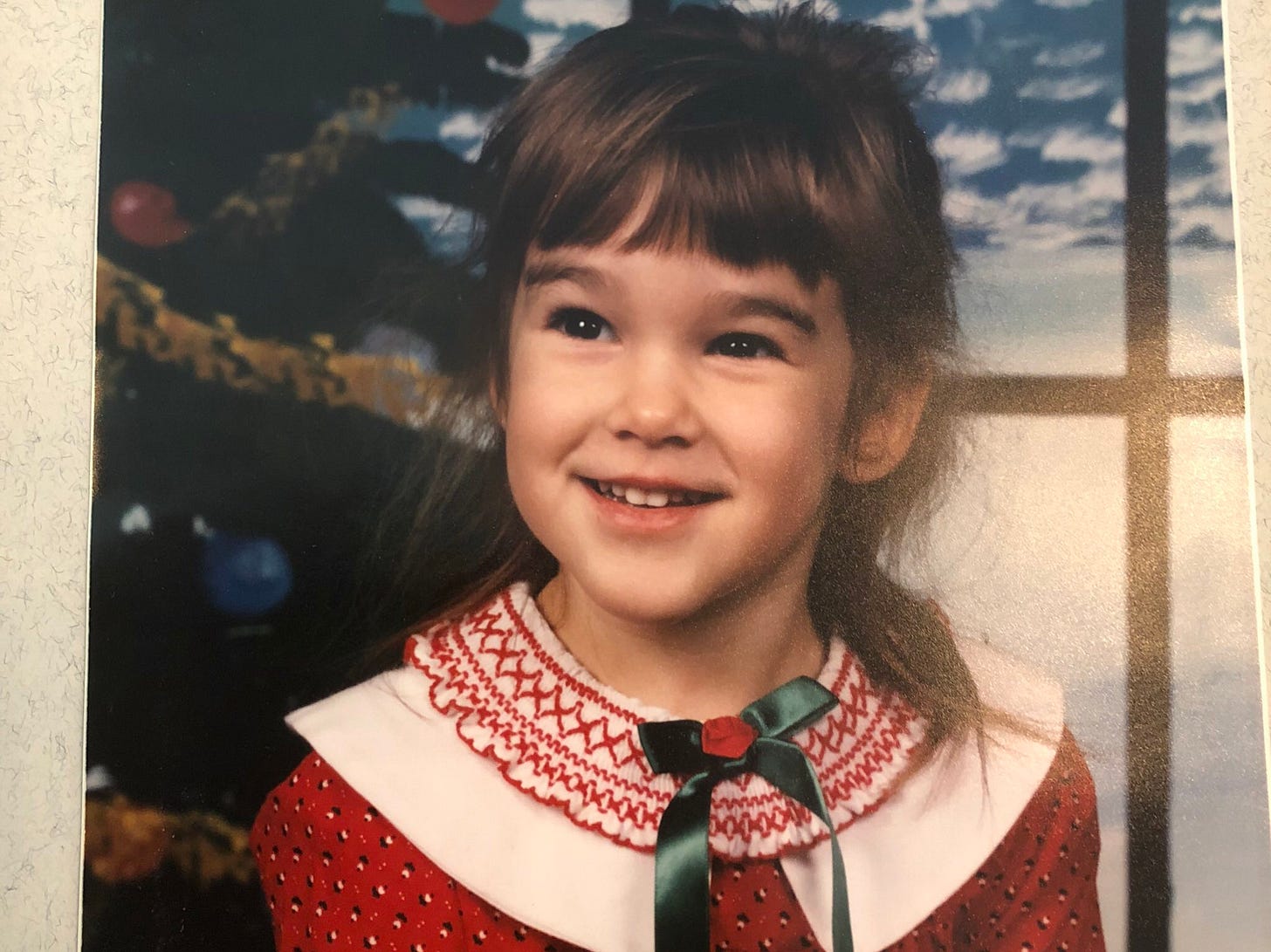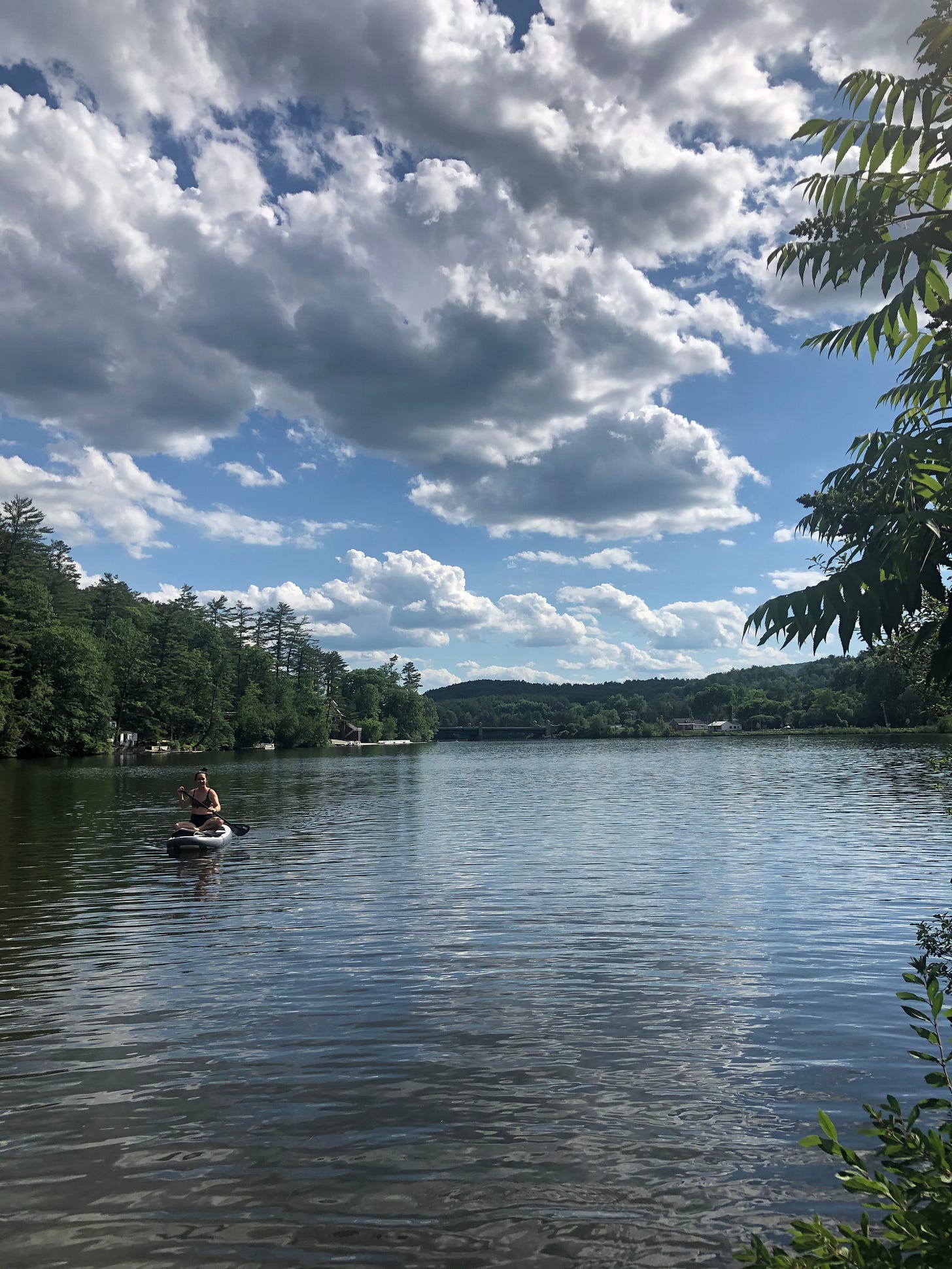Welcome to The Liminality Journal! If this is the first time you’re reading, I am so glad you’re here! If you joined me earlier this week, I celebrated the release of this newsletter with you, and I’ve shared something new for the past few days since the launch, just to celebrate (be sure to check out those previous posts too).
I am so glad you’re here, because I have something important to share with you today. I’ve been learning the difficult but beautiful and empowering lesson of trusting myself over the last few years, and I’d like to share with you what I’ve learned.
Trusting ourselves is a process that is so completely liminal— we are traversing so many boundaries within ourselves, from childhood through adulthood, trying to learn what our own voice sounds like, trying to distinguish our actual intuition from what we’ve been told is our intuition. It’s such a tender space to live with, and I think it’s important to talk about.
So first, let me take you back to my beginning.
I was a kid who always felt and processed deeply. I was drawn to people, relationship, and the beauty of the world. But the older I got, the less I learned to trust that sensitivity; maybe I learned that it was unnecessary, or even a nuisance. I had relationships, but couldn’t always access my own voice in them.
Of course, trauma plays a part in the process as well, and with childhood trauma comes these pivotal moments of trying to discern whose voice you’re hearing— your own, or whatever you’re told along the way. For me, especially after my parents’ divorce when I was 9, anxiety and/or worry gradually took the place of that healthy sense of deep rootedness in my life. I began to lose trust in myself, my body, and my ways of understanding the world around me.
I can recall numerous times in adolescence when I had the opportunity to make a decision, and I didn’t. Instead of taking the initiative to make a decision, I leaned back into the traps, and status quo, of toxic people-pleasing and codependence in relationships. I asked others to make decisions for me, or I altogether avoided conversations that were difficult or perceived as difficult.
In other words, I didn’t know how to trust myself.
I believe it’s a particular problem within the white, evangelical church in America, the way we’re taught (and groomed) as women to be compliant and “nice,” to smile and work as hard as we can to never rock the boat. We are thrust into a world of patriarchy and complementarianism, where the most important thing is to do as we are told as young women (and on into every age beyond that), and, essentially, to keep our opinions to ourselves. We are most successful when we learn to listen and obey well, no matter the cost to our own knowing.
So you can see how it might be difficult, not to find our voices, but to recognize that we’ve always had voices in the first place.
I noticed something else, too, about the way this works. We are afraid to speak, to name, to imagine, or to explore our voices, identities and intuition because of fear itself. What if they get angry with me? What if I lose them? What if they tell someone I’m awful? What if I get hurt? What if I hurt someone else? What if, what if, what if until we’ve closed ourselves off completely and others answering for us is the only option.
So, what happens when, for whatever reason, we begin to trust ourselves again? In Glennon Doyle’s newest book Untamed, she writes, “When women lose themselves, the world loses its way…we need women who have detoxed themselves so completely from the world’s expectations that they are full of nothing but themselves.”
In other words, we learn to trust ourselves again, and here’s what happens when we do that:
Controllers will get mad (but they still lose their power). Those who have relied on us to keep our mouths shut and to stay loyal to the status quo of our own smallness will get angry when we set boundaries and begin to voice our opinions and knowing. It’s what happens when so many of us leave the church, relationships, or marriages that have harmed our sense of self worth— we are told that we are being selfish, that our boundaries are actually the toxic thing, and that we are nothing without those rules tightened around us. When we speak up and trust our own intuition again, controllers will get angry about it, but we will work on our own liberation, anyway.
We will get scared—but for different reasons. Learning to trust yourself again is difficult and can feel scary as hell, with a constant ebb and flow into and out of that trust. I often catch myself still acting out of trauma or people-pleasing, saying yes to things I should say no to, worrying when I want to fully trust my gut. But even the scariness of those moments means that we are catching ourselves in the process of learning to trust, and that leads toward empowerment. It’s not the fear of what if that I described earlier, but a fear of what’s next? And that is a beautiful question to ask if we embrace it with our whole selves and remember that we are not alone.
We will learn that trust is a lifelong process. So often, especially in our day in age, I think we get to burnout so quickly because we want the quick fix for everything. As with so many things, trusting ourselves is meant to take a lifetime. So much of this work is reconnecting to our child selves, speaking kindly to them, loving them, and learning who we are today. It involves dreaming about who we want to be 10, 15, 20 years from now, and that means exploring and celebrating ourselves along the way.
I don’t know what the path will be for you. Maybe it’s a partner who reminds you daily that your voice matters. Maybe it’s leaving relationships that are toxic. Maybe you need to step away from a work or social situation that demeans you again and again. Whatever the reason, however you take the path, I hope you take it. I hope you learn to trust yourself again, because it is holy, sacred work, the work of traversing the boundaries and finding that our own knowing was always there, waiting for us to come home to them.
Don’t forget, most of my writing will remain free, because I believe that sharing my words with all of you is what creates this community. For free subscribers, you’ll still get access to my essays and some original poetry.
But if you’d like to subscribe for a paid account, you’ll get access to the following:
a look into my life as an essayist and poet
participate in discussion threads with me
glimpses into notes from my personal journals
Onward, friends, into the knowing.






